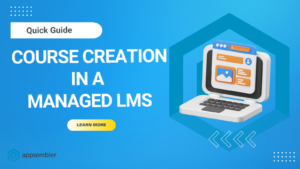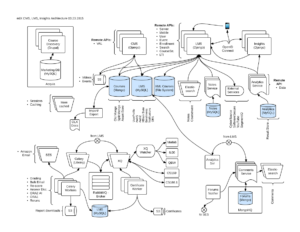As developer job roles expand and their purchasing influence grows, the need for developer marketers will increase. With the number of developers continuing to rise—the figure is expected to reach 45 million worldwide by 2030— and companies switching to a dev-centric approach, understanding how to market to this growing population is becoming increasingly important.
While developer marketers are in demand due to this shift in approach, the pressure is on to engage this notoriously critical audience. Traditional marketing techniques don’t work on developers, which means you need to follow an entirely different playbook if you want to succeed in your role. While there isn’t a standard playbook for developer marketing, taking a piecemeal approach and learning through trial and error won’t cut it for long.
Below we’ve put together our top tips to help you cement your position as a top-tier developer marketer and deliver on your goals.
Think and Talk Like a Developer
If you want to engage developers you need to speak their language. Explaining your product to developers is an art form. Being able to articulate why developers need your product and its ecosystem is not easy. You need flexibility in your communication skills to be able to show that they are not trying to directly sell a product or even market to their audience.
You need to understand the developer mindset, how they think, what kind of approach they need, and what kind of material they are receptive to. Having this understanding will ensure that you can connect with your community, and proves you understand developers and are a trustworthy contact.
Listen
If you want to excel in your role as a developer marketer, you need to be able to listen and empathize with your user’s problems. This will enable you to represent developers’ voices in your organization, and also educate them on how your product works.
By listening you will be able to gather feedback from developers, so you can ensure that your content meets their needs, answers their questions, or increases their usage of the product. You will also be able to represent developers’ needs to your internal company and build the trust of your community as they know you’re on their side.
Craft the Right Message and Content
Crafting the best user experience for developers requires you to adopt a different mindset when writing content. You never want to treat developers as leads, but rather as a workforce that’s eager to learn, improve, and utilize the best tools that solve their problems.
You need to educate developers rather than trying to take the hard sell approach. To understand and be able to use your product to its full, developers need educational materials that teach them how to use it. They will often read copious amounts of uninterrupted, continuous documentation to get up to speed. By turning your existing developer documentation into immersive, educational experiences, you can transform the developer experience and improve developer growth, developer adoption, product usage, API calls, and built applications.
As well as interactive documentation, deliver self-paced training to provide an experience that empowers developers to get the most out of your product. Developers can revisit the content as often and as many times as they like and, if they find a particular module difficult, they can spend more time on it.
These courses also allow you to collect a lot of granular data about the developer which isn’t possible if you only provide blogs or static tutorials. You can see where developers are getting stuck and where they are dropping off and use this data to create better courses and improve the developer’s learning experience.
Interact Regularly With Developers to Build a Community
Building a developer community, or engaging in existing communities, is key to success as a developer marketer. To ensure you’re interacting regularly with your audience, go to sites where developers hang out to figure out what they like or don’t like about your product and competitive products. Speak to your Solutions Engineers and Developer Evangelists regularly, as these conversations can become a reliable source of insight into what they’re seeing on the front-line. They have a wealth of knowledge of use cases about what developers are doing with your product.
Remember to revisit which communities you engage in, as this will change over time and can depend on the different programming languages or expertise, and look at what developers are doing with your product, not just what they’re saying about it.
Engage in Continuous Learning
To be a top-class developer marketer, you need to have a keen interest in not only learning how your product works at an in-depth level but also keeping up to date with how your product is evolving and how the industry is changing. A love of innovating through technology and staying on top of industry trends is key as is a dedication to spending a lot of time learning.
Gain Networking and Public Speaking Expertise
Organizing and attending virtual and in-person events is a key responsibility in the role of any developer marketer. You need to be comfortable making new contacts and evangelizing (but not selling) your products to audiences at these events.
As these events serve as a way to introduce your product to a new audience, you should be able to run workshops or give talks to articulate what your product does and how it can help overcome real-world problems.
Measure Metrics That Matter
If you want to demonstrate your success as a developer marketer, you need to make sure you’re measuring the right metrics. This means connecting marketing activity with developer product adoption, rather than product sales. While some traditional marketing metrics might still work for developers––such as newsletter sign-ups or eBook downloads––there are developer-specific metrics further down the funnel that won’t be applicable and take much longer to measure.
The five categories of metrics you need to measure to determine the success of your developer marketing program are:
- Awareness
- Adoption
- Engagement
- Community
- Satisfaction
To learn more about the specific metrics in these categories you need to track, read our “What is Developer Marketing?” piece.
Implement a Developer Marketing Platform
A developer marketing platform can help developers succeed with your product by guiding them through the learning journey. This kind of platform can help:
- Increase product awareness and usage amongst developers
- Provide a hands-on educational experience that enables developers to launch and start building on your platform instantaneously through Appsembler virtual labs
- Enable you to gain insights into your developers’ product experience with interactive tools and reporting
If you want to position yourself and your product as a leader in the market, then a developer marketing platform is a must to get you there.




